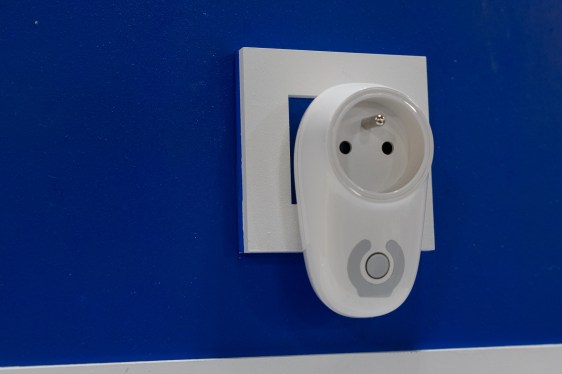Fall Detection and Autonomy for the Elderly Takes Center Stage at CES
As we walk through the bustling halls of the Consumer Electronics Show (CES) in Las Vegas, it becomes apparent that fall detection and autonomy for the elderly is a hot topic this year. Two innovative companies, Cherish Health and Zoe Care, have caught our attention with their cutting-edge solutions.
The Problem: Ensuring Elderly Safety
For many seniors, living independently can be challenging due to declining health or mobility issues. Falls are a significant concern, often resulting in serious injuries or even fatalities. Traditional fall detection systems rely on wearable devices that can be intrusive and raise concerns about privacy.
Cherish Health’s Serenity Solution
Cherish Health has introduced the Serenity appliance, which uses radar technology to cover an entire house with fall detection capabilities. While this solution is effective, it may not address the issues of privacy and ease of use. The device costs $300, making it a significant investment for many elderly individuals or their caregivers.
Zoe Care’s Innovative Approach
Zoe Care takes a different approach by leveraging existing Wi-Fi signals to detect humans and their activities. This non-intrusive solution is both cost-effective and addresses the key issues of privacy and ease of use that often plague conventional remote monitoring technologies.
How Zoe Fall Works
The device doubles as a smart plug, using a sensor to gather and analyze Wi-Fi signals. If a fall is detected, these signals are translated into alerts on a mobile application. With coverage up to 800 sq. ft., just one device can secure multiple rooms or even an entire floor, making it an efficient solution.
Beta Testing and Pricing
Zoe Care is currently beta testing with nursing homes, and a consumer version will be available by the end of the year. The fall detector will be offered as a subscription service, costing around $20-25 per month in the U.S.
Co-founder and CTO Piotr Antonik on Zoe Fall
"We’re currently beta testing with nursing homes. A consumer version will be available by the end of the year. The fall detector will be offered as a subscription service, around $20-25 per month in the U.S."
The Mission Behind Zoe Care
Zoe Care’s co-founder and CEO, Thomas Saphir, emphasizes their mission to help the elderly maintain their independence. "Our innovative Wi-Fi-based fall-detection solution respects privacy and offers peace of mind for millions of senior citizens. We believe this technology can revolutionize elder care."
A Conversation with Piotr Antonik
We had a chance to speak with Piotr Antonik, co-founder and CTO at Zoe Care. He explained the unique aspect of their technology: "Our algorithm is embedded directly within the Wi-Fi receiver for total privacy. The company says its technology matches or even surpasses competing solutions in terms of performance, making it an ideal solution for caregivers who prioritize both efficiency and privacy."
Zoe Fall’s Deployment
The deployment process is simple: Wi-Fi waves emitted by an existing internet box or router are captured by Zoe Care’s plug. The AI within the sensor then analyzes wave variations to recognize movements and detect falls. If a fall is detected, an alert is immediately sent to the smartphone of a caregiver or relative.
Zoe Fall’s Future Plans
Zoe Care plans to expand its Wi-Fi sensing technology to remote patient monitoring, aiming to analyze chronic diseases and provide monthly health reports to monitor conditions like heart disease. With a subscription cost of $20-30 per month and no upfront cost, Zoe Care is a cost-efficient solution in this space.
The Impact on Elderly Care
Zoe Fall’s deployment can have a significant impact on elderly care. With its ability to detect falls, caregivers can rush to the aid of their loved ones, ensuring prompt medical attention when needed. This innovative technology can give care homes a powerful tool to ensure if someone falls, help is just around the corner.
Conclusion
As we explore the world of fall detection and autonomy for the elderly at CES, it becomes clear that Zoe Care’s innovative approach with Zoe Fall has set a new standard in this space. With its non-intrusive, cost-effective solution, Zoe Care has shown us that ensuring the safety and independence of our seniors is not only possible but also within reach.

